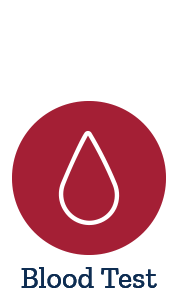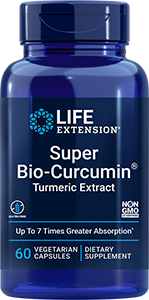|
|
|
Tuesday, October 20, 2015
An article that appeared online on October 7, 2015 in the American Journal of Clinical Nutrition reveals a reduction in total plasma homocysteine in men who were supplemented with N-acetylcysteine (NAC), an antioxidant derivative of the amino acid L-cysteine. Elevated homocysteine has been linked to an increased risk of cardiovascular disease, dementia and other adverse conditions.
Researchers in Heidelberg, Germany reanalyzed data from two double-blind, placebo-controlled trials involving healthy middle-aged men who received 1.8 grams per day NAC or a placebo for four weeks. The first trial included 40 men with elevated lipids and the second involved 42 subjects with normal lipids. Plasma cysteine and homocysteine, blood pressure and other factors were evaluated before and after the treatment period.
Both those with normal and elevated lipids experienced significant reductions in systolic blood pressure, and diastolic blood pressure was reduced in the hyperlipidemia group. Supplementation with NAC was associated with a 28% average increase in plasma cysteine and an approximately 12% reduction in homocysteine in comparison with the placebo group, regardless of the subjects' lipids or smoking status.
"In summary, four weeks of oral 1.8 g NAC per day significantly decreases total homocysteine in hyperlipidemic and normolipidemic smokers and nonsmokers to a clinically relevant extent," the authors conclude. |
|
|
| |
|
|
What's Hot |
|
|
|
Unfavorable homocysteine, vitamin B12 levels linked with increased risk of lumbar osteoporosis |
|
|
|
 |
|
| |
An article appearing in the September, 2015 issue of the American Journal of Clinical Nutrition on July 29, 2015 reported the outcome of a study of older women which found an increased risk of osteoporosis of the lumbar spine among those with higher levels of methylmalonic acid (MMA, which is elevated in up to 98% of those with vitamin B12 deficiency) and the potentially damaging amino acid homocysteine.
Researchers at the National Institutes of Health utilized information obtained from 2,806 women aged 50 and older who participated in the National Health and Nutrition Examination Survey (NHANES) from 1999 to 2004. Whole-body dual-energy X-ray absorptiometry results provided the researchers with data concerning lumbar spine bone mineral density (BMD). Concurrent blood test results included total homocysteine, red blood cell (RBC) folate, serum vitamin B12, methylmalonic acid and other factors.
Women with normal lumbar spine BMD had lower homocysteine and higher RBC folate than those who had low bone mass or osteoporosis. Elevations in homocysteine and methylmalonic acid were associated with a greater risk of lumbar osteoporosis versus low or normal bone mass. Among those with low serum vitamin B12, the risk of having a total body BMD that was among the lowest 25% of participants was significantly greater than the risk experienced by the remainder of the subjects.
"Our analysis suggests that elevated homocysteine and MMA are significantly associated with increased likelihood of osteoporosis in a nationally representative sample of US women," Regan L. Bailey and colleagues conclude. "Given the public health burden of osteoporosis and age-related bone disorders together with the rapidly aging US population, we hope this work will serve to stimulate additional research aimed at addressing the role of vitamin B12 and folate in bone health in older women in the United States."
|
|
|
| |
|
|
|
|
Health Concern
Homocysteine reduction |
|
|
Homocysteine is an amino acid made from a common dietary amino acid, methionine, that inflicts damage to the inner arterial lining (endothelium) and contributes to many diseases:
- cardiovascular disease
- congestive heart failure
- stroke
- migraines
- age-related macular degeneration
- hearing loss
- brain atrophy
- Alzheimer's disease
Fortunately, B vitamins like folate, vitamins B6 and B12, and other integrative interventions can reduce homocysteine and counteract this destructive process.
Many factors contribute to high homocysteine levels:
- Insufficient folate, vitamin B6, vitamin B12, betaine, vitamin B2, and magnesium
- Prescription drug use (including cholestyramine, colestipol, fenofibrate, levodopa, metformin, methotrexate, niacin, nitrous oxide, pemetrexed, phenytoin, sulfasalazine)
- High-methionine diet (including red meat and dairy products)
- Smoking
- Coffee
- Alcohol consumption
- Advancing age
- Obesity
- Genetic variant that causes an impaired ability to metabolize active folate from folic acid
|
|
|
| |
|
|
Latest Products |
|
|
 |
Stress Management Profile Blood Test on Sale
Balancing Cortisol & DHEA for Stress Management and Optimal Health
Item #LC100043
|
Not feeling all that great? Experiencing low energy or is your memory not what it used to be? Or maybe you just feel like something is "off"? Could it be stress related? Most people are quick to pick up on the fact that their diets are poor, or they're not exercising or sleeping enough. But stress on the inside (physiological stress), due to things like food sensitivities, infection, glucose imbalances, environmental toxins and all types of inflammation are typically hidden to the human eye.
Since chronic stress slowly erodes your health and compromises longevity, the importance of healthy cortisol and DHEA levels cannot be overlooked. The adrenal gland is an essential part of your energy delivery mechanism. In response to any stress (physical, psychological, mental or whatever) your adrenals pour out the required hormones to cope. For short term stress (seconds to minutes) the hormone is adrenalin, for medium term stress (minutes to hours) we need cortisol and for long term stress (hours to days) - DHEA.
Since cortisol and DHEA have opposing effects, and work through their alternating dualistic balance, they should be viewed together. The following are some major effects of an imbalanced cortisol to DHEA ratio:
- Impaired immunity
- Chronic fatigue
- Irritability, depression and panic disorders
- Sleep disturbances
- Central obesity
- Glucose and lipid metabolism dysfunction
- Thyroid dysfunction- cortisol suppresses thyroid function by inhibiting conversion of T4 to T3
- Detoxification capacity for heavy metals and other toxins is diminished
- Osteoporosis
- Impaired memory
- Sex hormone insufficiency
The Stress Management Profile contains the following tests:
- Cortisol AM/PM
- DHEA-S
- Glucose
- Insulin
- Lipid panel
- Progesterone
This panel requires two blood draws. One blood draw will be performed at approximately 8 AM after you have been fasting for 8-12 hours. (Please drink water in order to stay hydrated and take all medications as prescribed.)
You will return to the laboratory at approximately 4 PM for the second blood draw of a second cortisol specimen. Since cortisol production is highest in the morning and falls as the day progresses, two cortisol results in the same day are the most helpful in evaluating adrenal function.
|
 |
Super Bio-Curcumin®, 400 mg, 60 vegetarian capsules
Item #00407
|
Super Bio-Curcumin® is a highly bioavailable form of curcumin extract. A polyphenol nutrient found in the spice turmeric, curcumin benefits nearly every organ system in the body. However, curcumin is a difficult compound for the body to absorb. That's why Super Bio-Curcumin® is made with BCM-95®, a patented curcumin formulation that is up to 7 times more absorbable than standard curcumin supplements.
Benefits at a Glance
- Up to 7 times more absorbable than conventional curcumin supplements
- Whole-body health benefits for nearly every organ system
- Inhibits inflammatory factors like NF-kappaB protein molecule
- Promotes healthy immune system function
- Helps maintain healthy digestive function
Bio-Curcumin® and BCM-95® are registered trademarks of Dolcas-Biotech, LLC. U.S. Patent Nos. 7,883,728, 7,736,679 and 7,879,373. |
|
|
|
|
|
Related Life Extension Magazine® Articles |
|
|
|
|
|
|







